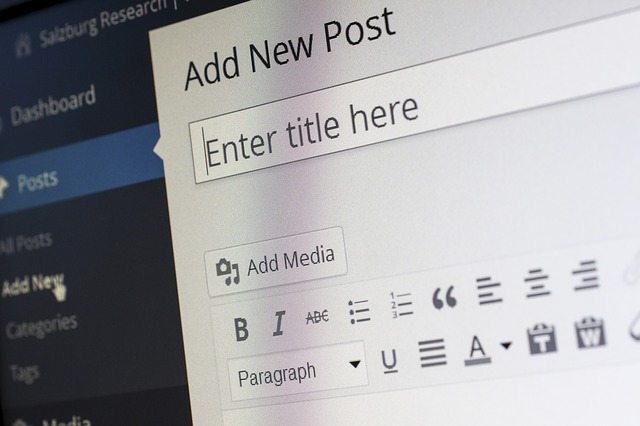- Does it answer a question?
Why should your content help the user?
Helping their users find the answers they’re looking for as quickly and efficiently as possible is Google’s main responsibility. They use many different ranking factors to determine who gets first place in their SERP, including backlinks, dwell time, bounce rate, length, depth, mobile optimization, page speed, and plenty more that we don’t even know about.
By creating high-quality content that actually helps the user with their problem – whether by providing them with useful statistics, an in-depth product review, or offering a service – Google will recognize the fact that you’ve created a solid web page that’s actually helping people, and you’ll receive a rankings boost.
Here’s why:
When your content is genuinely helpful, people are bound to link to your page as a resource for others experiencing the same issue. Additionally, people are far more likely to take their time reading a helpful resource, rather than bouncing immediately or skimming through the page. All in all, creating a helpful resource benefits the user’s overall experience, thus helping your rankings and boosting your clientele.
Your website must be well-written. You don’t have to be a New York Times Best Seller, but you (or your writer) should be a proficient writer in that they know how to be direct, to the point, and most importantly, they should be able to write a comprehensive article without losing the reader’s attention.
It’s also important to be (or to hire) a native English speaker to write your articles, as opposed to a foreigner who speaks English as their second language. They won’t know many colloquialisms of the language, and they’ll probably misuse expressions or words.
Google’s complex ranking algorithm has evolved to the point of being able to know when a page is written by a native English speaker or a foreigner, and they’ll penalize pages that aren’t written in proper English.
Having a well-written web page also goes back to having helpful information – in the end, well-written content will help you generate backlinks, it will keep your users reading for a longer period of time, and it will give you a rankings boost, all of which are incredibly beneficial to the success of your website.
The importance of a well-structured web page cannot be overstated; both sentence and paragraph structure will have a profound impact on your website’s dwell time, bounce rate, and conversion rate.
Hiring a proficient writer native to the English language is important – you have to make sure your sentences aren’t awkward, nor do you want blocky paragraphs that are intimidating to read.
If your sentences are poorly worded, your credibility automatically plummets, as does your dwell time and conversion rate. However, having all of your information jumbled up in a few humungous paragraphs will have the same negative effect: a higher bounce rate, lower dwell time, and lower conversions.
Why?
Well, the short answer is people are lazy. The majority of people naturally skim web pages while they’re reading, instead of actually taking their time and thoroughly reading every paragraph. Think about it: people are looking for the answers they want as quickly as possible; they don’t care about the fluff.
With that being said, it becomes easier to understand why monster paragraphs are a bad thing. When someone looks at a huge paragraph, it can be visually overwhelming. They don’t want to sift through all of that information to find what they’re looking for.
On the other hand, if you present the same information – even the same amount of information – but you do so in bite-sized paragraphs, you’ll see your dwell time and conversion rate soar. When you keep your content condensed in shorter paragraphs, it immediately becomes less overwhelming and easier to read.
What’s the bottom line here?
Make sure your sentences are well worded and written by a native English speaker. Cut out the fluff, and keep your paragraphs short, sweet, and to the point. Even if you have a lot of information to share with your users, it’s crucial that you keep your paragraphs bite-sized. You don’t want to overwhelm your audience.
Before you even begin writing, you need to plan ahead. Think about how you are going to organize your articles.
It’s always a good idea to plan your articles based on your target keyword, relevant keywords, relevant pages that you could link to internally, and other relevant content that you need to include.
You should be using plenty of subheadings in your articles, both so that you can help your readers navigate your web page with ease, and to include your target keywords in the tags.
If your content is random and all over the place, Google will have a hard time understanding your web page. Moreover, people won’t really know what it is they’re reading – they’ll spend less time on page, and they’ll be even less likely to link back to your resource.
Think about the goal of your web page, as well as your target keyword, and plan your page accordingly.
A picture is worth a thousand words.
Everyone loves multimedia – whether it is a picture or a video, including media on each and every web page on your site is crucial. Pages with plenty of fun media – both vibrant images and engaging videos – provide a better experience to the user.
Images bring pages to life, diagrams help to explain concepts far better than words possibly could, and videos are not only fun to watch, they actually give you a rankings boost. Google loves it when they find YouTube videos embedded in a web page because they own YouTube. When their bots crawl your page and find a video, you’ll receive a rankings boost.
Pages without multimedia are dull, boring, and unengaging. Take a look:
This page is covered in blocky paragraphs, without any images. It’s boring and hard to read, both of which you want to avoid when designing your website. Be sure to include plenty of relevant, high-quality images and at least one YouTube video in your articles.
Tables aren’t appropriate for every website, but they are usually not a bad idea to include. They prove especially useful for product pages, as they actually increase conversions. Product tables are a great way to display a bunch of information at once. The information is easy to digest and provided all in one place.
Even if you don’t have a product page, using tables is a fantastic way to display information without overwhelming the user.
As mentioned previously, Google’s main objective is to provide their users with the best content possible. Content is king, and Google tends to favor longer articles as opposed to shorter articles.
On average, first page rankings have around 1800 words. In most cases, the longer the better. Nevertheless, you should avoid adding fluff to increase your word count. It’s best to be direct and to the point; with that being said, you should also strive to be as thorough with your writing as possible. Deliver everything your users need to know, and you’ll probably be somewhere between 1000-2000 words anyway.
Although, don’t think you have to write War and Peace. Just take a look at the average length of the first page of Google’s search results, and try to make your page a few hundred words more.
Also, going back to the point about page structure, you should break your article up into bite-sized pieces. That doesn’t necessarily mean you should write shorter articles; quite the contrary. Be thorough and write a lot, but don’t put too many sentences in one paragraph, and make sure to organize your page with plenty of subheadings. This is the best way to optimize your page for readability.

